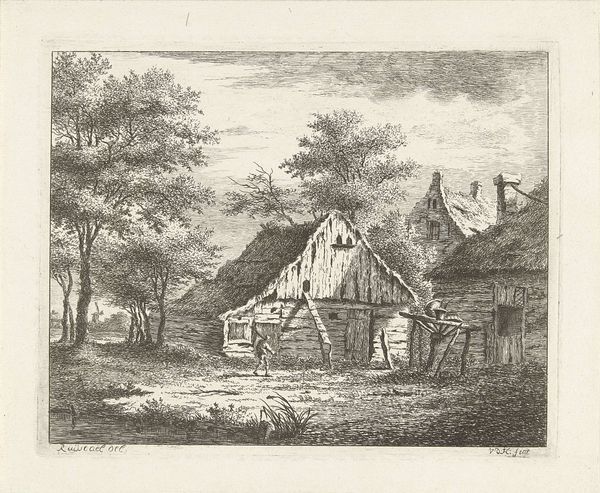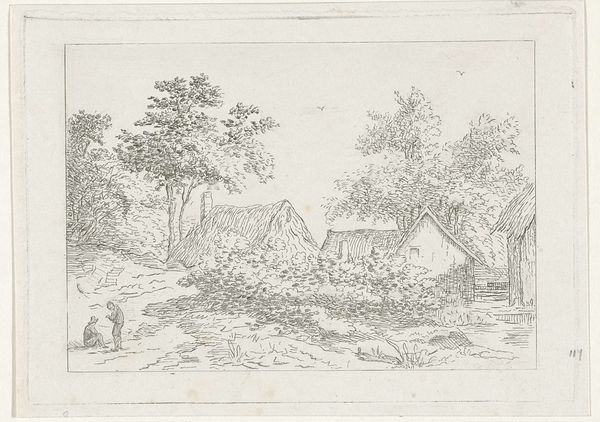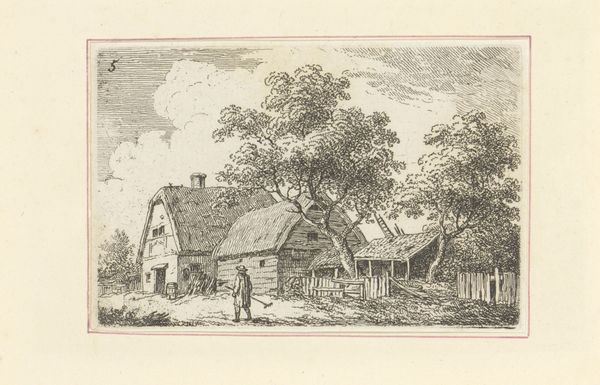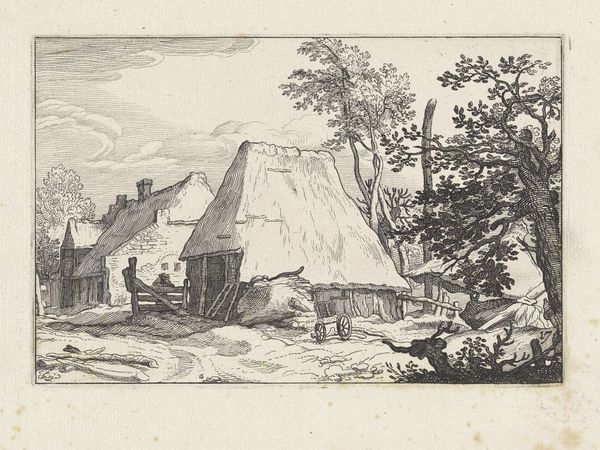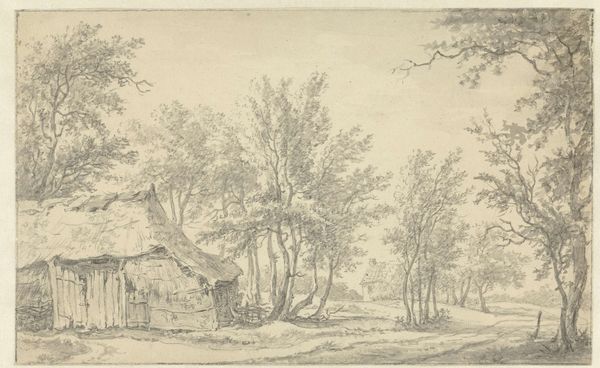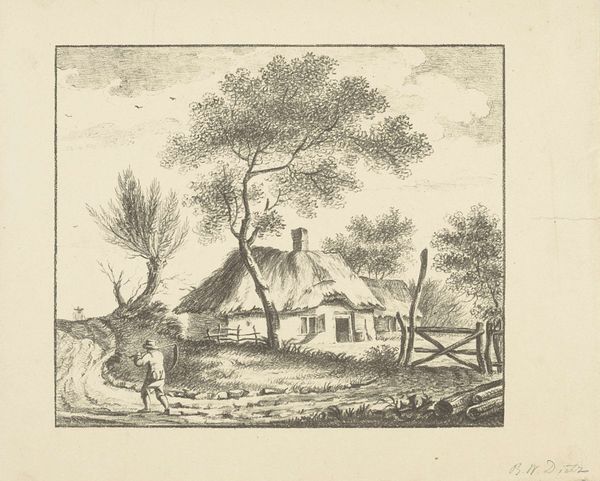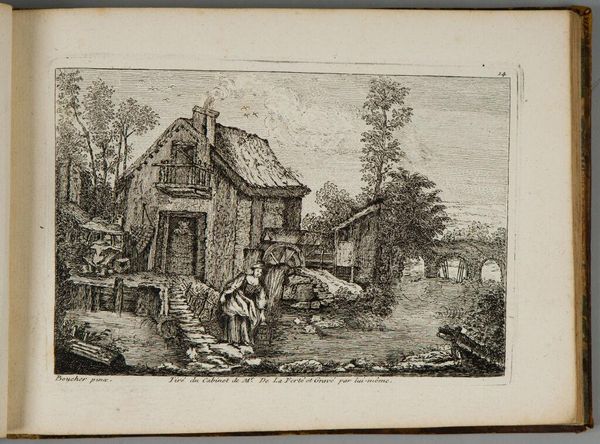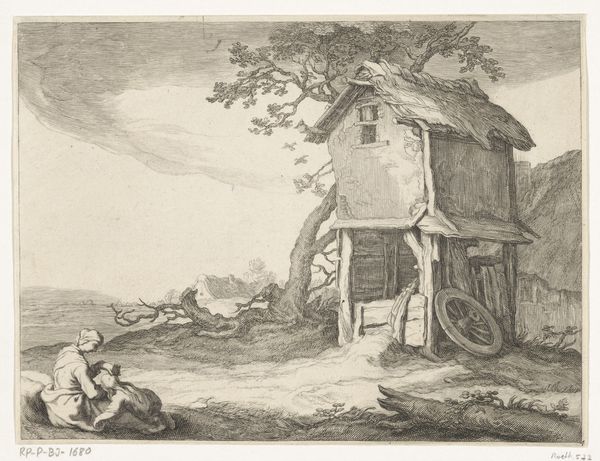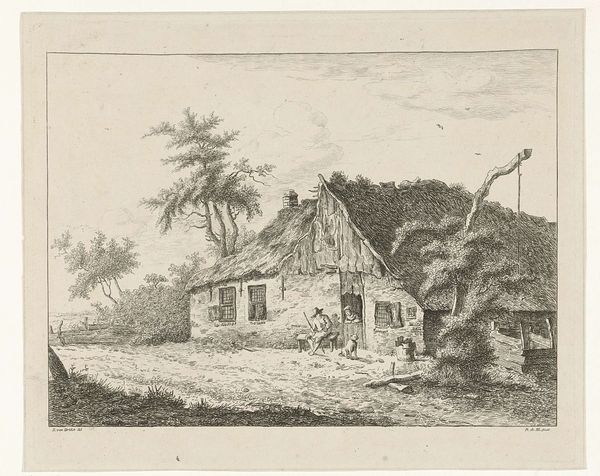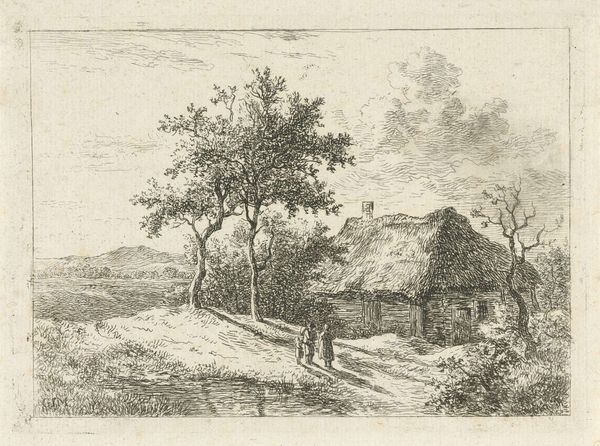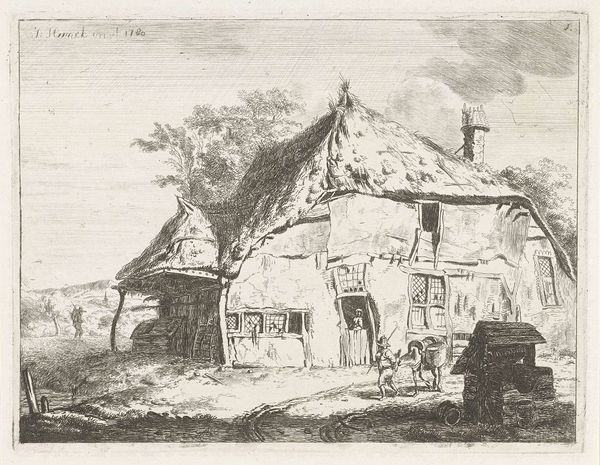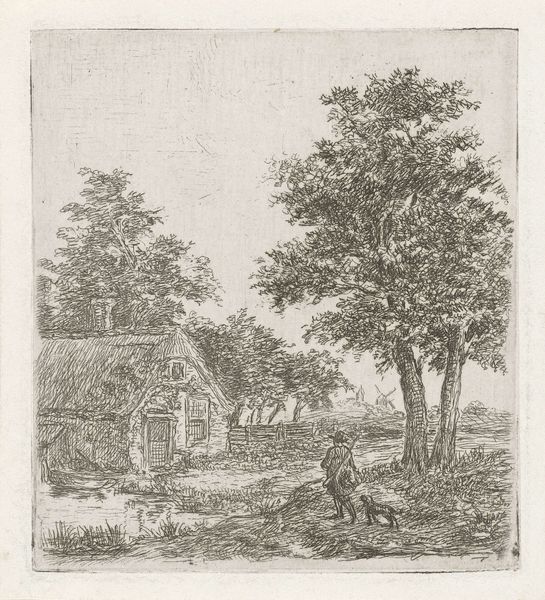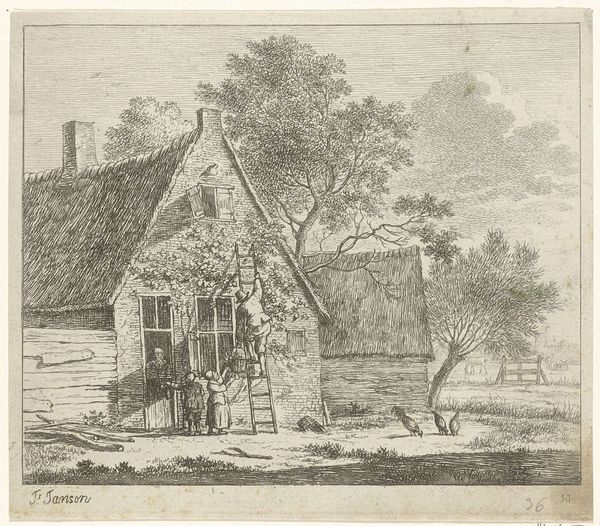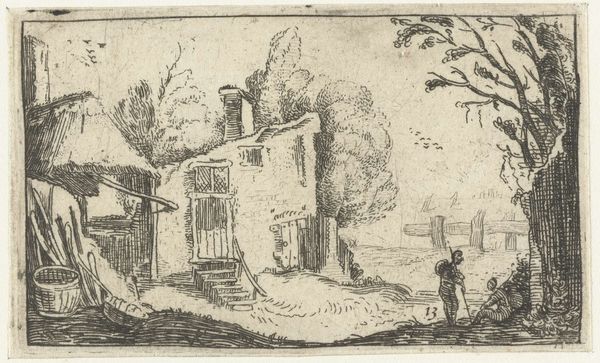
drawing, etching, ink
#
drawing
#
pen sketch
#
etching
#
dog
#
landscape
#
ink
#
romanticism
#
line
#
genre-painting
#
realism
Dimensions: height 61 mm, width 114 mm
Copyright: Rijks Museum: Open Domain
Curator: This is Hendrik Marcus Schouten's 1810 work, "Man with Dog near a Farm by the Water," rendered in ink and etching. Editor: It has such a delicate, wistful quality. The fine lines create a soft, almost dreamlike landscape. Curator: Exactly. Consider the societal context; etching allowed for relatively inexpensive reproductions, making art more accessible. It also speaks to the democratization of subject matter, moving away from solely portraying the wealthy elite. We see instead, a humble, rural scene. Editor: And it's within those delicate lines that Schouten constructs a robust visual structure. The thatched roof and wooden construction are rendered with such textural detail, the way the light catches the surfaces is captivating. Curator: That materiality speaks volumes about the lives of ordinary people at the time. We can surmise details about their living conditions, access to resources, the nature of their daily existence based on the depiction. It humanizes the rural experience and places value on their lives, labor, and consumption. Editor: Yet there's a formalism present, too. Notice how the artist employs vertical lines of the building to lead the viewer’s eye toward the upper-left corner of the artwork and the hazy, undefined horizon beyond, or consider how the tonal variation enhances the composition’s emotional depth. Curator: I am fascinated by the inclusion of the man with his dog in a genre-painting; we glimpse leisure activity and human/animal relations and labor, juxtaposed with the agrarian life represented by the buildings and materials. The role of the pastoral ideal is fascinating, too. Editor: A lot to ponder there. Ultimately, for me, it’s a compelling visual narrative. The balance and composition—the way each element is painstakingly considered—are remarkable for a relatively humble etching. Curator: Indeed. A work of understated complexity when viewed through the lens of the means and methods of production during a period of change. Editor: Absolutely, seeing how process creates an emotion elevates the aesthetic consideration as well.
Comments
No comments
Be the first to comment and join the conversation on the ultimate creative platform.
